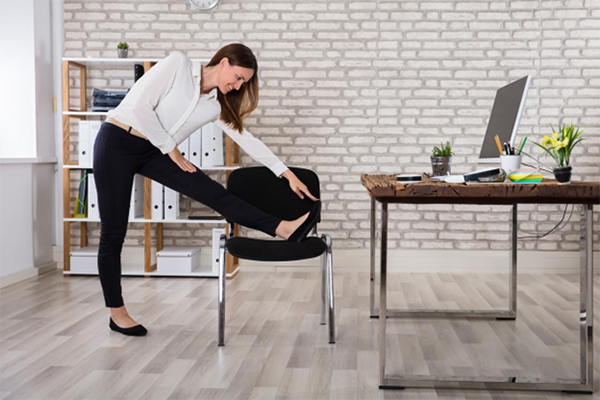
If you have been diagnosed with hip or knee arthritis, you know how frustrating the pain and stiffness can be. But did you know that stress could be making your symptoms worse? Chronic stress triggers inflammation, muscle tension, and unhealthy habits, all of which intensify joint pain. As April is Stress Awareness Month, now is the perfect time to explore the connection between stress and arthritis—and how you can break the cycle for lasting relief.
The Link Between Stress and Joint Pain
Stress affects your body in more ways than you might realize. When you're under stress, your body releases cortisol, a hormone that can cause inflammation when elevated for long periods. For arthritis sufferers, increased inflammation means more pain, stiffness, and swelling in the joints. Additionally, stress often leads to:
- Muscle Tension: Tight muscles put extra strain on your joints, increasing discomfort.
- Poor Posture: Slouching or improper movement patterns add stress to weight-bearing joints like the hips and knees.
- Unhealthy Habits: Stress can lead to a lack of exercise, poor diet, and disrupted sleep, all of which negatively impact arthritis symptoms.
Breaking the Cycle: How to Manage Stress and Arthritis Together
Since stress and arthritis pain are closely connected, managing stress effectively can help improve your joint health. Here are some key strategies:
Stay Active with Low-Impact Exercise: Exercise is one of the best ways to relieve both stress and arthritis pain. Low-impact activities like swimming, cycling, and walking strengthen the muscles around your joints, reducing pressure and discomfort. Physical therapy can also help improve mobility and ease stiffness.
Practice Stress-Reducing Techniques: Incorporating relaxation techniques into your daily routine can lower cortisol levels and reduce inflammation. Try:
- Deep breathing exercises to calm your nervous system
- Yoga and stretching to ease muscle tension
- Meditation and mindfulness to shift focus away from pain
Improve Sleep Quality: Poor sleep can increase sensitivity to pain and make stress harder to manage. Establish a bedtime routine, limit screen time before bed, and create a relaxing sleep environment to improve rest and recovery.
Maintain a Joint-Friendly Diet: A balanced diet rich in anti-inflammatory foods can help combat stress and arthritis pain. Focus on:
- Healthy fats (olive oil, avocado, fatty fish)
- Fruits and vegetables (rich in antioxidants)
- Lean proteins and nuts (to support muscle health)
When to Seek Expert Care for Arthritis Pain
If arthritis pain is limiting your mobility and affecting your quality of life, it may be time to consider advanced treatment options. An orthopedic doctor can assess your condition and recommend the best course of action, including non-surgical therapies, injections, or joint replacement surgery for long-term relief.
By managing stress and seeking expert care, you can improve your joint health and regain mobility. Schedule a consultation with Dr. Ehmke, a fellowship-trained hip and knee specialist, to explore personalized treatment options that help you get back to an active lifestyle.
AUTHOR: Dr. Andrew Ehmke is a board-certified and fellowship-trained joint replacement surgeon specializing in robotic-assisted and minimally invasive hip and knee replacement in Chicagoland and NW Indiana.





